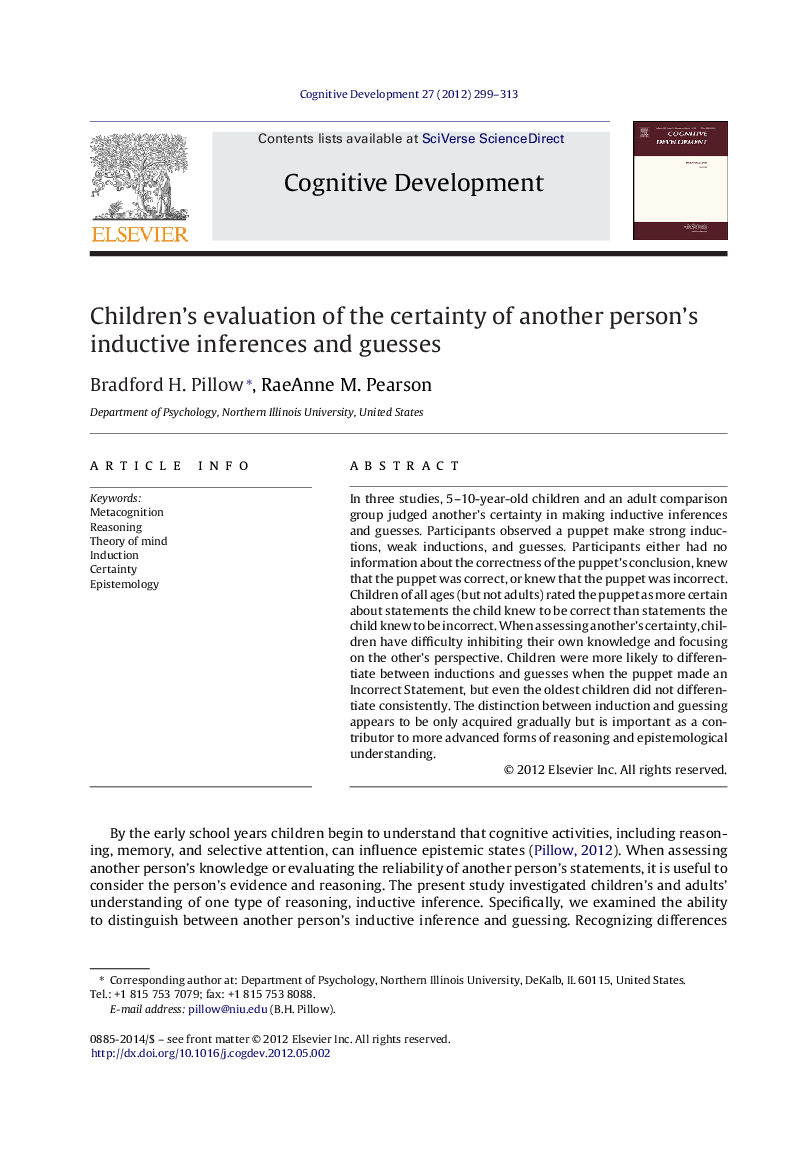| کد مقاله | کد نشریه | سال انتشار | مقاله انگلیسی | نسخه تمام متن |
|---|---|---|---|---|
| 916568 | 918865 | 2012 | 15 صفحه PDF | دانلود رایگان |

In three studies, 5–10-year-old children and an adult comparison group judged another's certainty in making inductive inferences and guesses. Participants observed a puppet make strong inductions, weak inductions, and guesses. Participants either had no information about the correctness of the puppet's conclusion, knew that the puppet was correct, or knew that the puppet was incorrect. Children of all ages (but not adults) rated the puppet as more certain about statements the child knew to be correct than statements the child knew to be incorrect. When assessing another's certainty, children have difficulty inhibiting their own knowledge and focusing on the other's perspective. Children were more likely to differentiate between inductions and guesses when the puppet made an Incorrect Statement, but even the oldest children did not differentiate consistently. The distinction between induction and guessing appears to be only acquired gradually but is important as a contributor to more advanced forms of reasoning and epistemological understanding.
► Children often fail to differentiate between another person's inductive inferences and guesses.
► Children focus on the empirical truth of the person's conclusion rather than evidence and reasoning.
► Adults’ judge another person to be more certain of inductions than guesses regardless of empirical truth.
Journal: Cognitive Development - Volume 27, Issue 3, July–September 2012, Pages 299–313